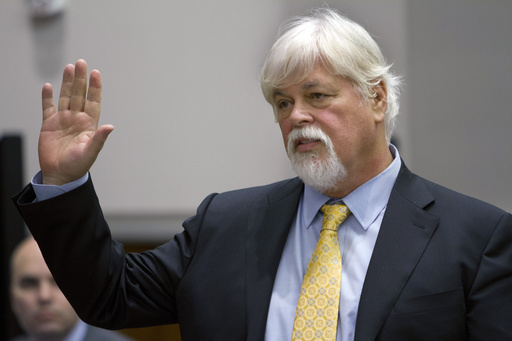
COPENHAGEN, Denmark — On Wednesday, a Greenlandic court opted to extend the detention of Paul Watson, an activist known for his anti-whaling efforts, until November 13. This extension is part of the ongoing review by Denmark regarding a request from Japan for his extradition.
The timeline for Denmark’s decision regarding Watson’s extradition remains uncertain, especially since the Scandinavian country does not have an extradition agreement with Japan. Watson, who holds dual Canadian-American citizenship and is 73 years old, previously led the Sea Shepherd Conservation Society, an organization known for its assertive approaches to marine conservation, including high-seas confrontations with whaling fleets. His campaigns have garnered support from notable public figures and featured in the reality show “Whale Wars.”
Watson was detained on July 21 as his vessel arrived in Nuuk, the capital of Greenland. Since then, the local court has continuously approved his custody while Danish officials investigate the potential extradition to Japan, where he could face a 15-year prison sentence, according to information from the Captain Paul Watson Foundation. It is important to note that Greenland operates as an autonomous region under Danish sovereignty, managing its own law enforcement and judicial matters.
The cause for Japan’s request stemmed from an incident involving a Japanese whaling research vessel in 2010. Watson allegedly obstructed the vessel’s crew by instructing his own crew to use explosives against the whaling ship. Prosecutor Mariam Khalil cited a perceived risk of flight as grounds for the necessity of prolonging Watson’s custody, as reported by the Greenlandic newspaper Sermitsiaq.
In a recent development, Sea Shepherd France announced that Watson had appealed to the French president for political asylum. Watson reportedly sent a letter to President Emmanuel Macron, who has previously shown support for Watson and highlighted the significance of the case for environmental activism and human rights initiatives.
In Japan, whale meat is considered a traditional part of the culinary landscape, and the government maintains that it advocates for the sustainable use of whale resources. Watson, who stepped down from his role in Sea Shepherd in 2022, was also a prominent figure in Greenpeace until 1977, when he left due to differences in approach and established the more aggressive Sea Shepherd organization. The group has continued to pursue vigorous campaigns aimed at the preservation of whales, dolphins, and numerous other marine species.
